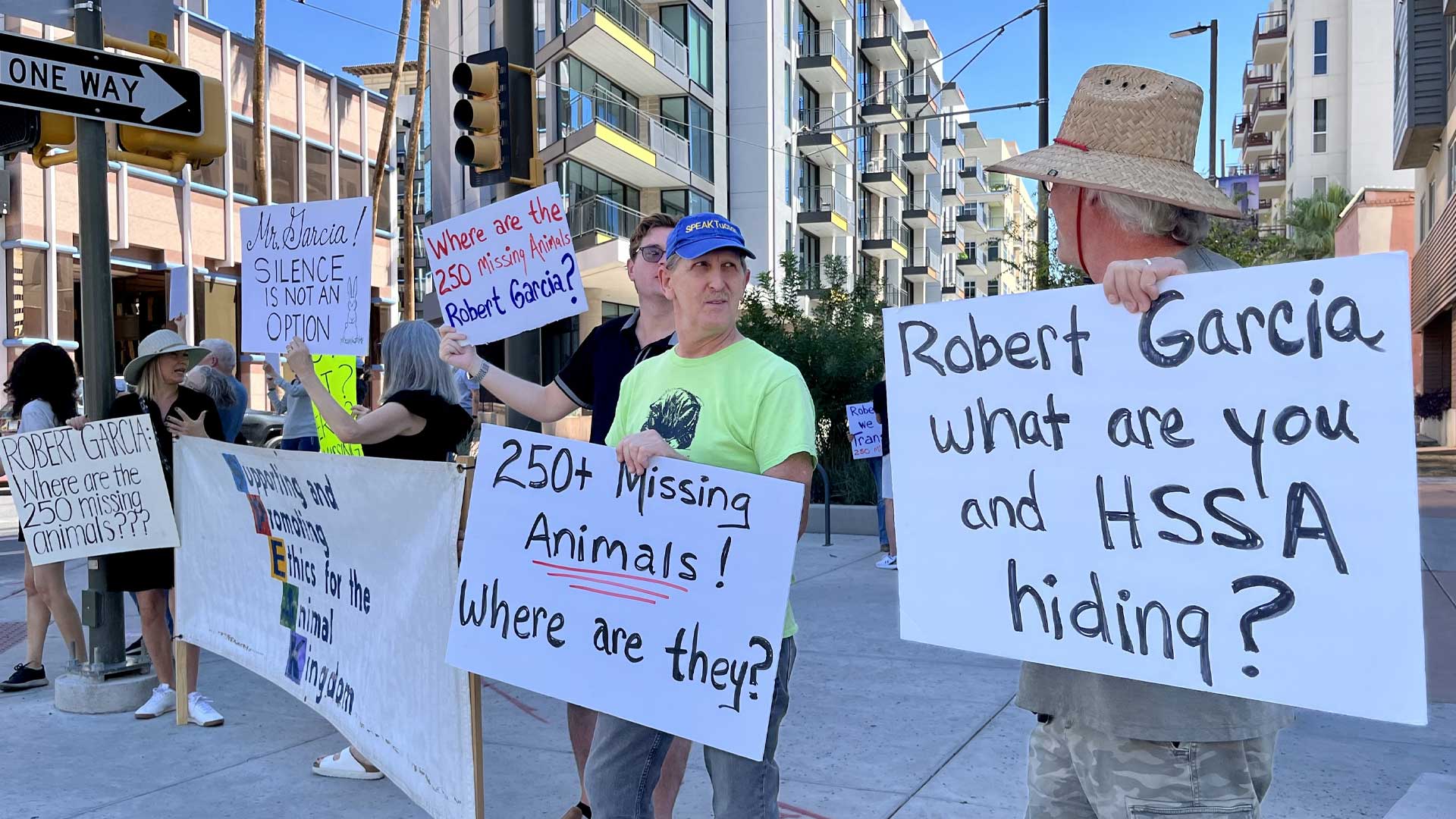 Animal advocates call for answers on what happened to 250 small pets, on Sept. 27, 2023, outside the downtown Tucson law office of Robert Garcia, chairman of the Humane Society board.
Animal advocates call for answers on what happened to 250 small pets, on Sept. 27, 2023, outside the downtown Tucson law office of Robert Garcia, chairman of the Humane Society board.
The Humane Society of Southern Arizona board of directors fired CEO Steve Farley, following the transfer of more than 300 small pets to an unvetted, unaccredited family, who also runs an informal business selling small animals for snake feed.
As well, the Human Society second-in-command Christian Gonzalez, who helped arrange the transfer of the animals from the San Diego Humane Society on Aug. 7, resigned. The board put both leaders on suspension last Friday.
Board Chair Robert Garcia said the board took action after reviewing the details and discrepancies of the situation, nearly two months after the original transfer.
“We did so due to their terribly negligent actions against the mission of the Humane Society and their failure to follow protocols among other reasons,” he said.
Garcia says the investigation continues into what happened to the rabbits, guinea pigs, hamsters, rats, and mice the Humane Society sent to brothers Colten and Trevor Jones in Apache Junction nearly two months ago.
Neither of the brothers has responded to questions from the media.
The more than 300 rabbits, guinea pigs, hamsters, rats, and mice were transferred from the San Diego Humane Society to Tucson and immediately taken to the Jones’ on Aug. 7. For more than a month the Humane Society would not say what happened to the animals other than they were adopted out by an anonymous organization.
Following a public outcry for information on the animals as well as animal activists discovering who received the animals, Gonzalez confirmed to AZPM that the Jones received the animals. He said the Jones told him that they adopted out the animals by calling friends and family but had no documentation on any adoptions.
After the public outcry for information, the Jones returned 64 animals to the Humane Society.
Garcia said the Humane Society has taken a financial hit due to the backlash around the incident.
“We rely on the public for support to help save animals and protect them and to carry out our mission, and so yes, this has compromised our ability to do so financially,” he said. “We hope to rebuild the trust that the community has placed in us so that our support returns to the levels they were at previously if not higher so that we can carry out our mission.”
Garcia says they will make public a version of the report that will include as much information as they reasonably can make public, and in the meantime, they will be posting updates on their website.
Garcia also said that staff, who had nothing to do with the transfer, have been harassed and threatened in connection to the incident.

By submitting your comments, you hereby give AZPM the right to post your comments and potentially use them in any other form of media operated by this institution.